The Best Pillow 2025 for Unrivalled Sleep Quality − Tried and Tested for Every Sleep Style
Our team of expert testers has rated these six of the best pillows for premium comfort, support, and cooling
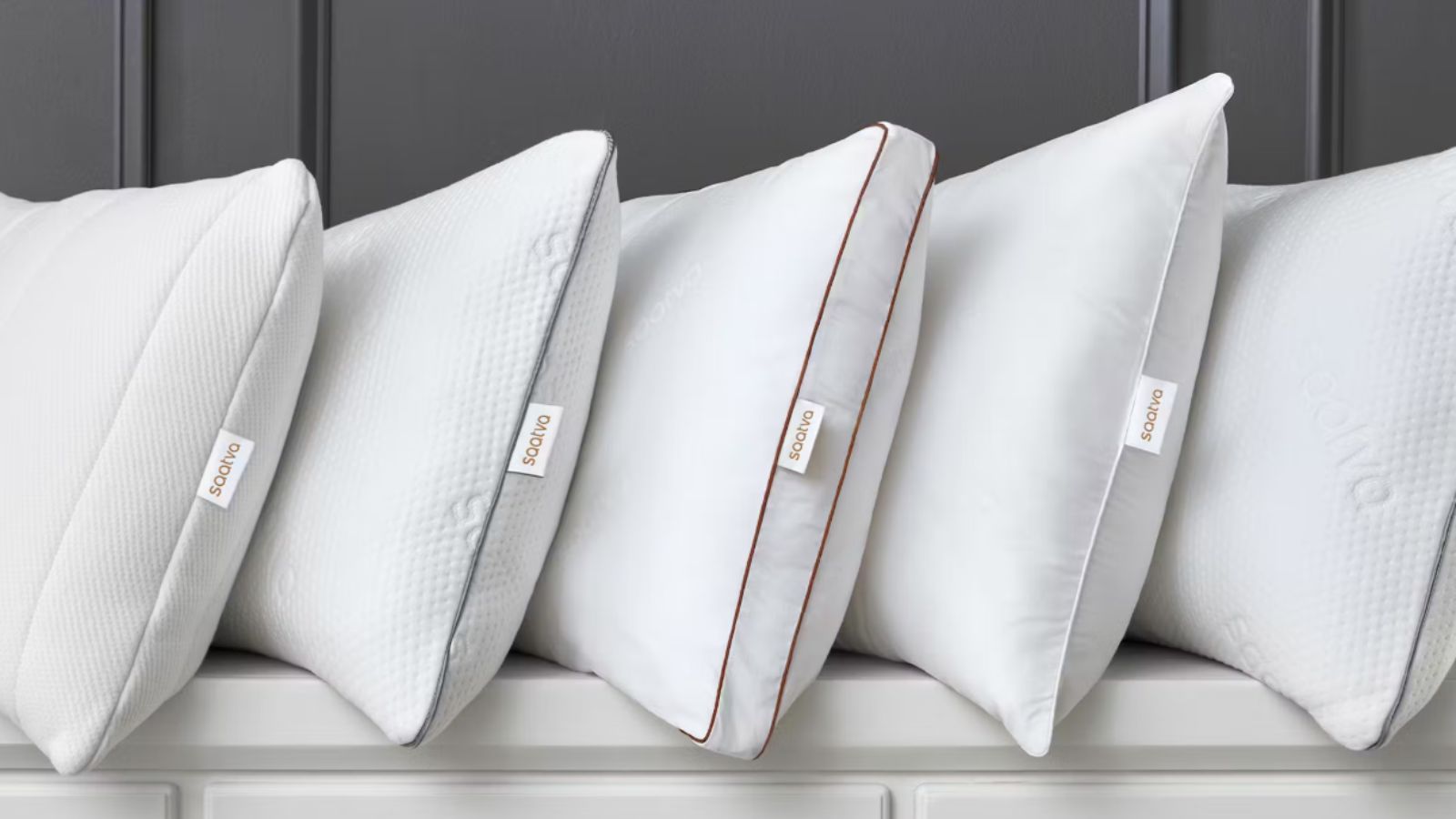

Katrina Harper-Lewis
A great night's sleep is so important for setting you up for the day, and a great pillow is absolutely central to that. But, naturally, everyone has a different sleep style, specific concerns – from neck pain to night sweats – and with so much choice out there, it can be difficult to know where to start when shopping for the best pillows.
Our complete guide to the best pillows will cover everything from materials and sizes to types to equip you with all the knowledge you need to make an informed decision about your purchase and find the perfect fit for you. Our reigning champion is the Marlow Pillow, which features adjustable firmness to suit any sleep style, but you might find that another of our tested pillows is a better match for you.
That's where Homes & Gardens' team of expert testers comes in. Together, we are specialists in our field, with years of experience in the sleep industry. Based across the UK and the US and in different climates, we represent a wide range of different lifestyles and sleep concerns. So, you can rely on our reviews to give you our honest opinions and comparisons on everything from the best pillows to the best mattresses to ensure you get that well-deserved great night's sleep and spend your money wisely.
Best Pillow − At a Glance
Below, you'll find a short summary of each pillow, outlining who it will suit and what it costs. To learn more about a particular pillow, keep scrolling or click on 'read more below' to shortcut to that section. There, you will find the need-to-know specs, including everything from the firmness and filling of each pillow, as well as detailed information from our expert reviews of each product.
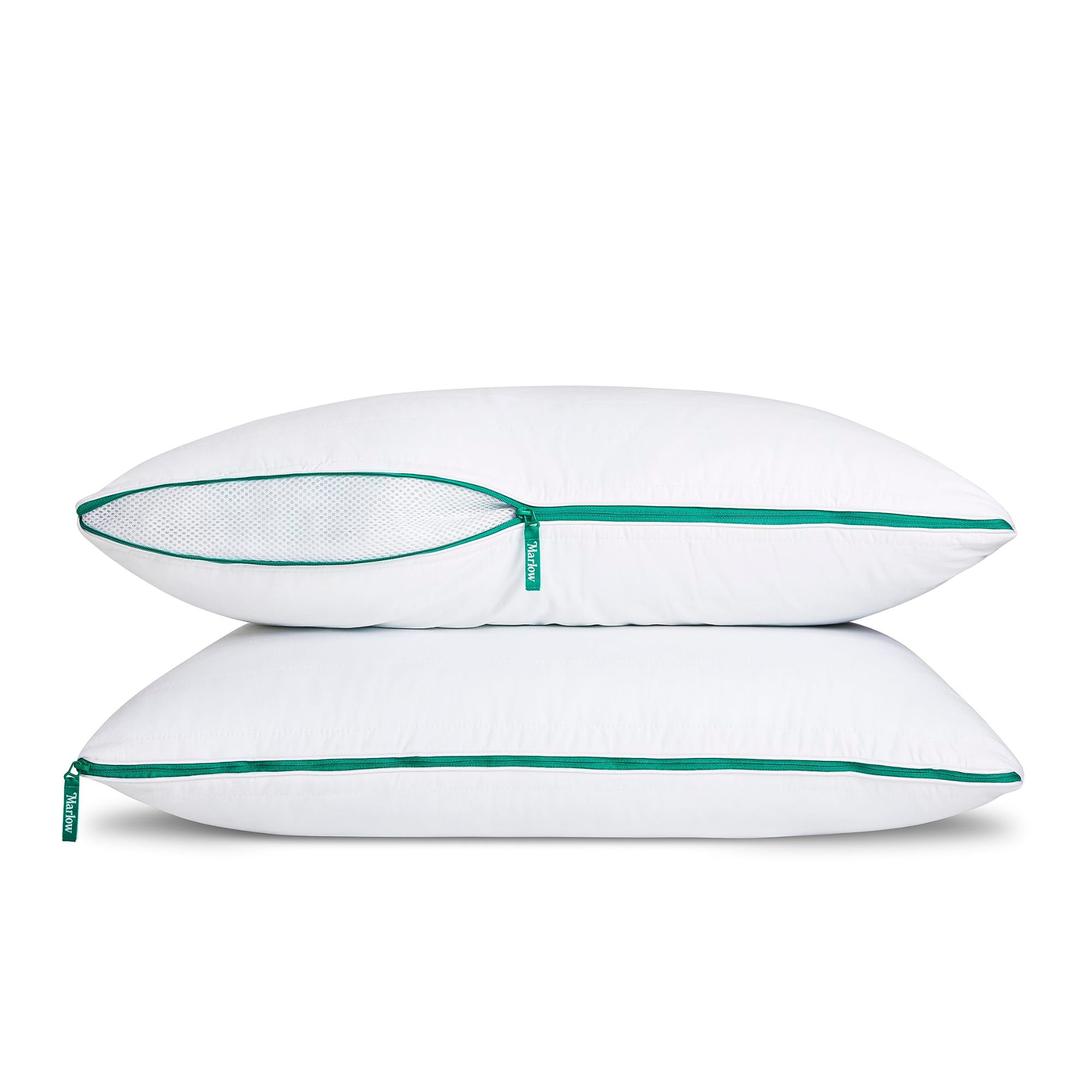
From the brains behind Brooklinen comes an adjustable pillow to suit front, back, and side sleepers, infused with cooling gel to dissipate heat and wick moisture. It's a great fit for your guest room.

This pillow comes in three shapes to suit different sleep styles. Our tester tried the classic, which is recommended for front sleepers, but side sleepers should try the Curved design, and back sleepers may prefer the Ultimate (adjustable) option.
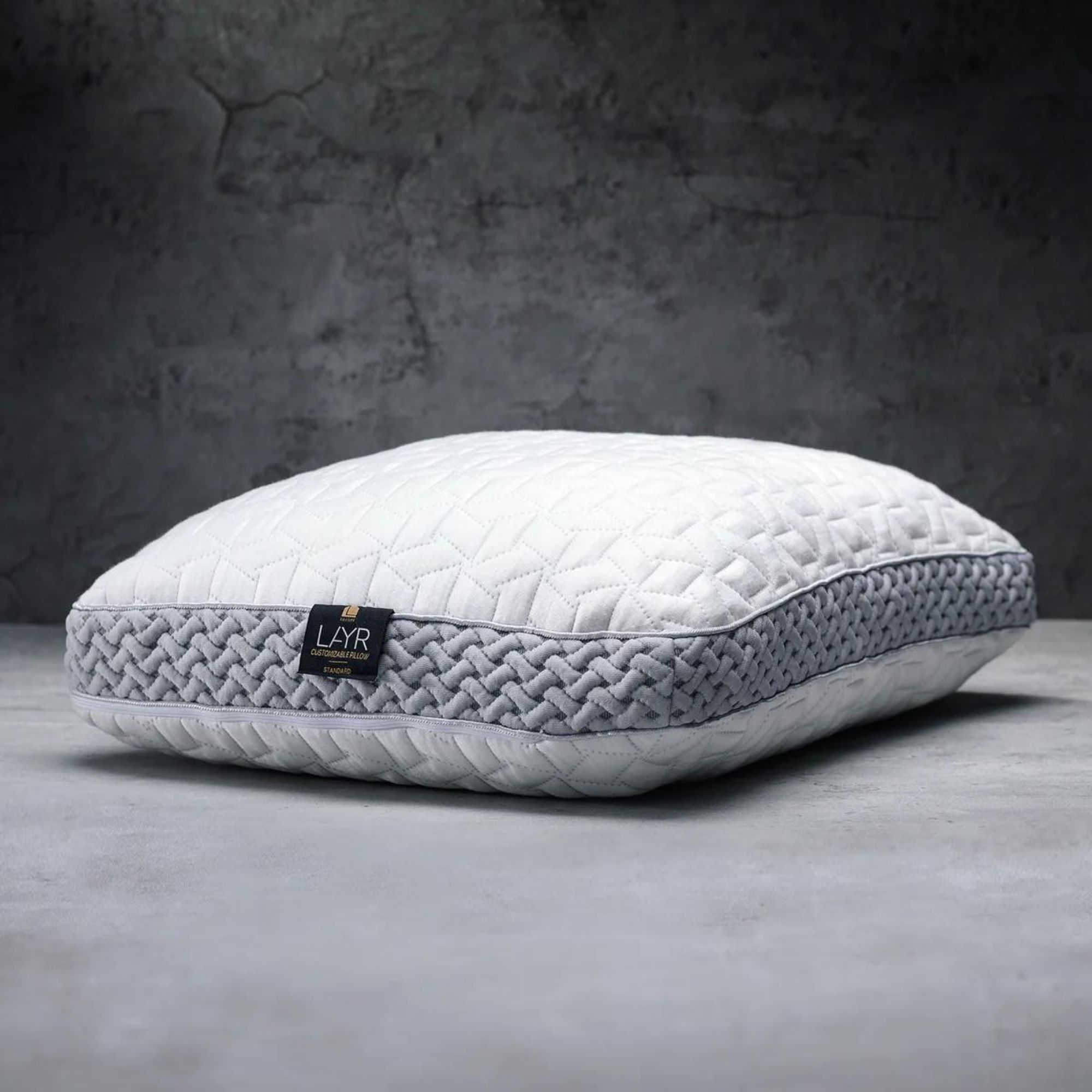
Filled with removable inserts, Luxome's adjustable design gives you full control over the thickness and firmness of your pillow. Try different combinations until you find the one that best supports your neck and sleep position.
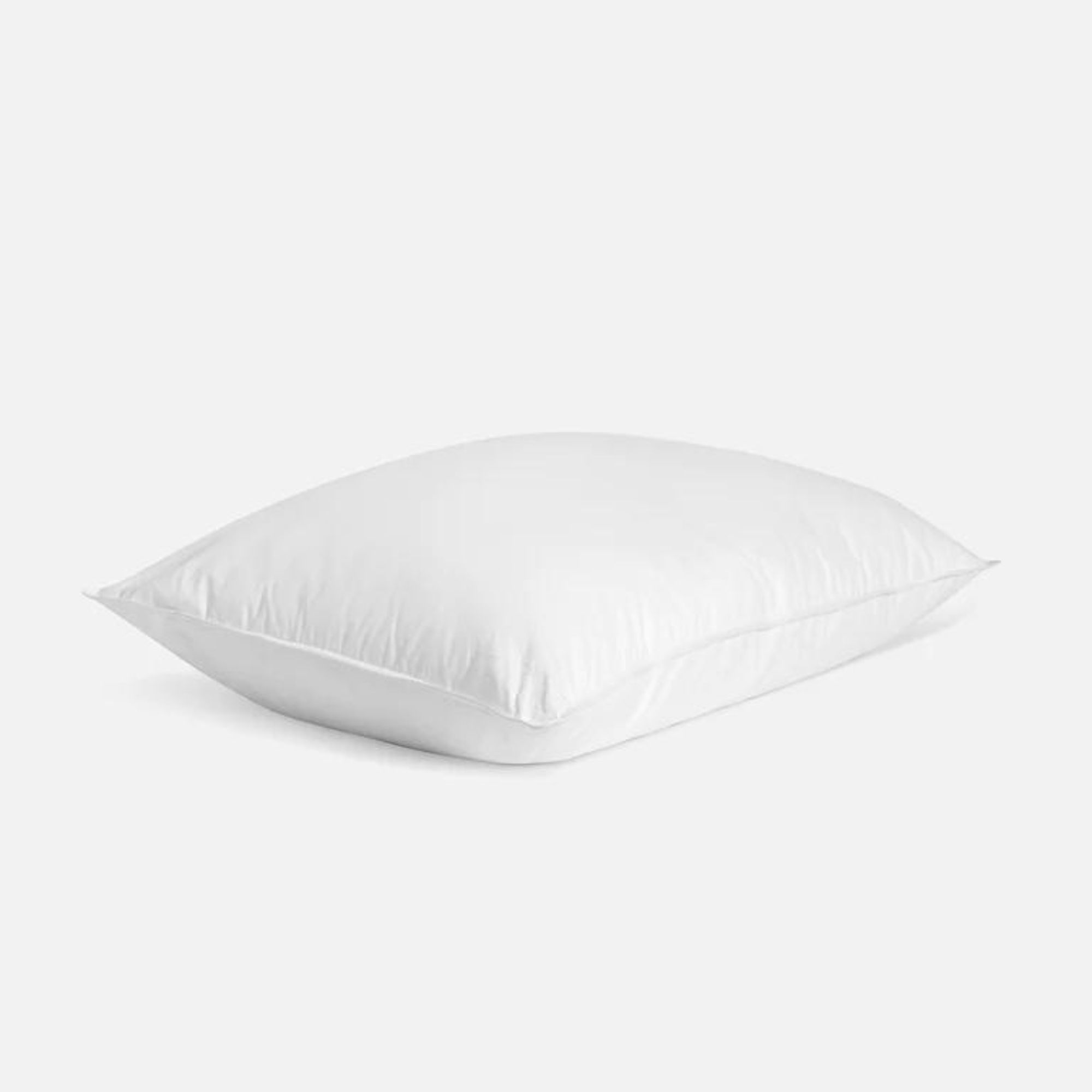
Filled with 100% Hutterite down, ethically sourced from Canadian farms, and available in three plushness levels to suit all sleep styles, the Brooklinen Down Pillow has natural loft for 'sink-in' comfort.

Memory foam is made to mold to the shape of your neck and shoulders, but a solid slab can feel a little unforgiving. The Lagoon Fox Pillow, however, is filled with shredded memory foam, which negates that issue and makes for effective pressure relief with serious squish.
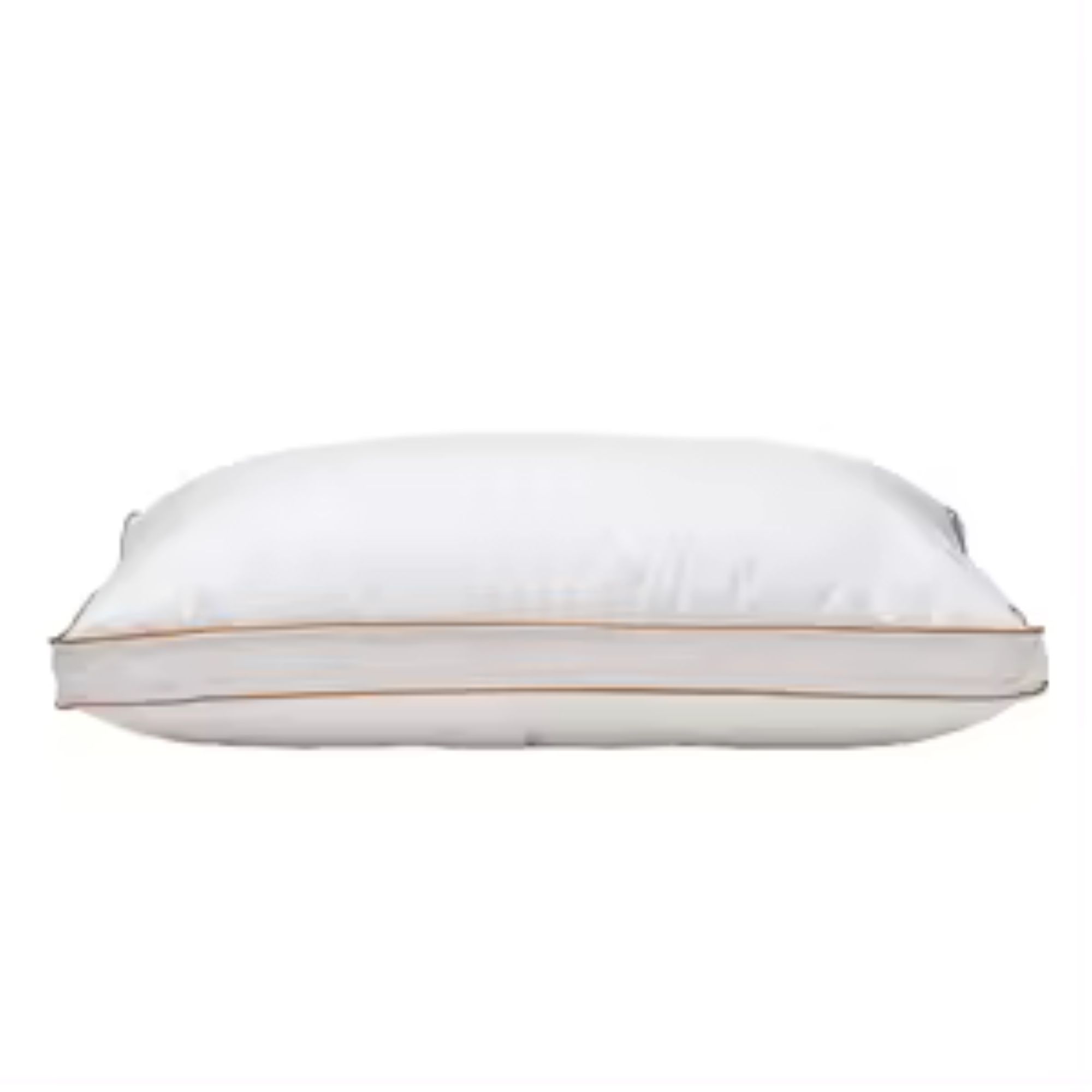
Latex is breathable, durable, and highly responsive to movement. It's a great fit for hot sleepers and anybody who likes the luxe feel of down, but minus the allergy concerns, as it doesn't harbor dust mites. Plus is more eco-friendly than memory foam.
The Best Pillow Overall
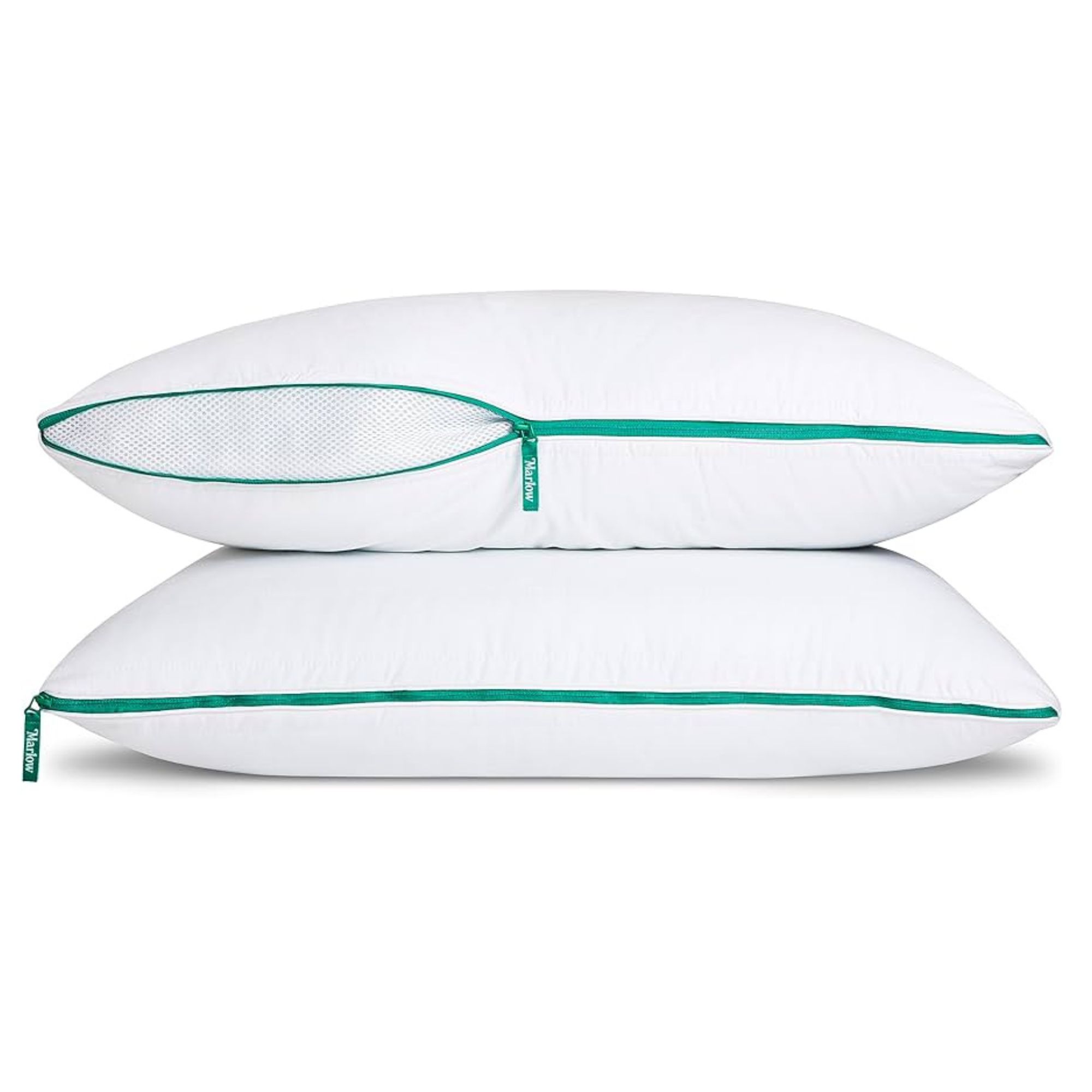
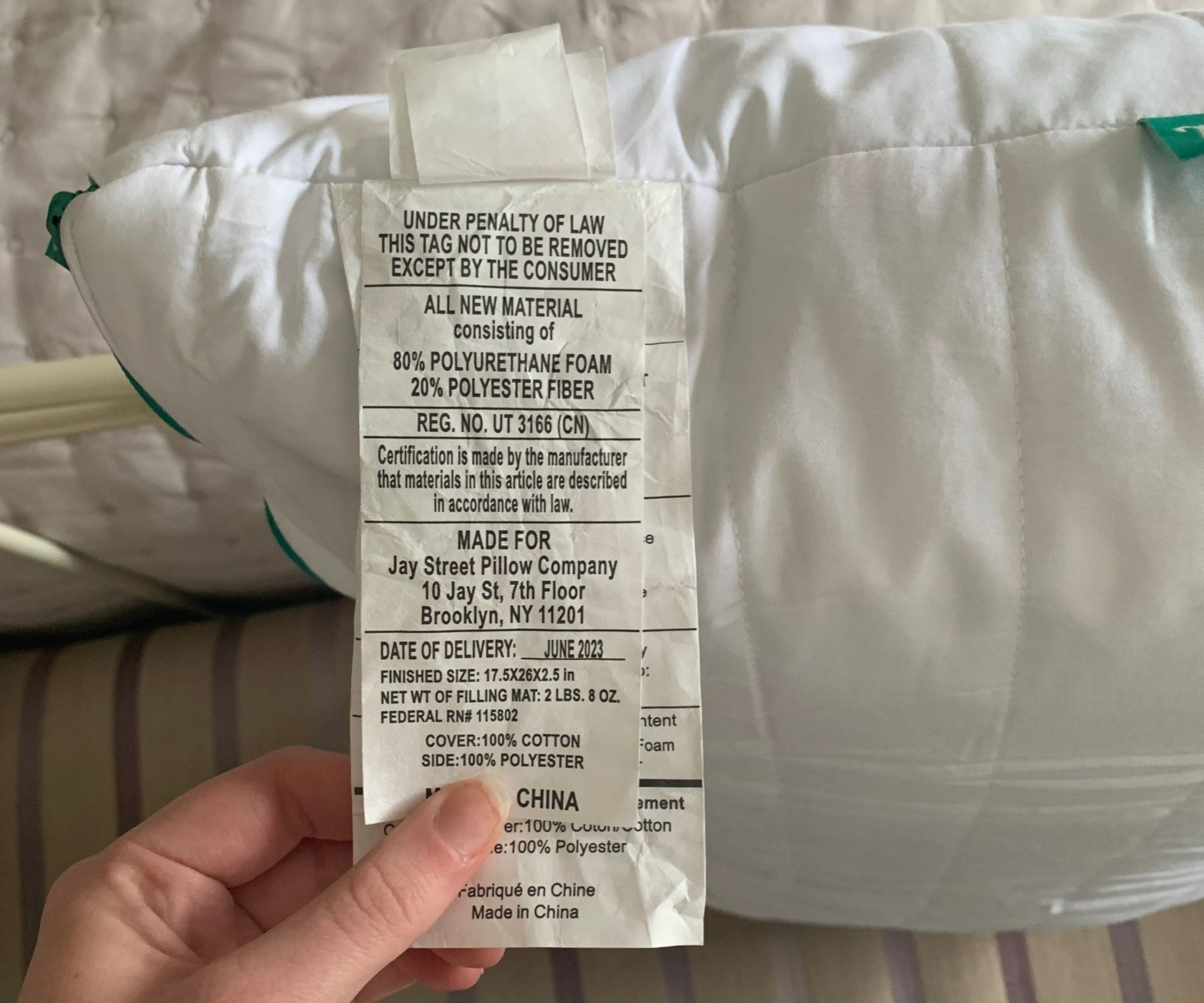
Specifications
Reasons to buy
Reasons to avoid
The best pillow should suit every style of sleeper, so that you can pass it around to each member of your household or place it in your guest bedroom to help your friends and family sleep comfortably. It tracks then that the best pillow in our guide is an adjustable option – the Marlow Pillow checks every box for comfort, cooling, and cost.
Some adjustable pillows have a series of pillow inserts or heaped handfuls of filling, which you can remove and replace until your pillow reaches your desired height. The problem with these methods is that they're a little messy. You'll need to find somewhere to store whichever inserts you aren't using and take care not to drop loose filling all over the floor.
I tested the Marlow Pillow, which incorporates an intuitive design to maximize comfort and minimize mess. There are two zippers: one at the top and one at the bottom of the pillow. All you need to do is open and close the zippers, letting air in and out of the pillow until you reach your optimal firmness and feel. It took me a few tries to achieve my ideal consistency, but once I'd found it, I knew I'd never slept on such a comfortable pillow. The additional gel-infused memory foam kept me cool through my pillow cover, too. You can also buy the Marlow Pillow Protector, which has a cooling dual layer and an antimicrobial coating. The Marlow Cooling Bundle, which includes the pillow and cooling protector, represents the best value at $79.
As luck would have it, the best pillow in this buying guide is also the most affordable: at full price, the Marlow Pillow retails for just $65 for the standard, and it's often discounted in the bedding sales, too. I'd recommend this pillow to everyone, unless you don't like the feel of memory foam: in that case, I'd encourage you to consider the Brooklinen Down Pillow as an alternative.
Read the full review here: The Marlow Pillow Review
Attribute | Notes | Score (out of 5) |
|---|---|---|
Comfort | Create a plush or firm feel, as suits you | 5 |
Support | Adjustable firmness to suit all sleep styles | 5 |
Thermo-regulation | Not quite so breathable as natural latex | 4 |
The Best Pillow for Back and Stomach Sleepers

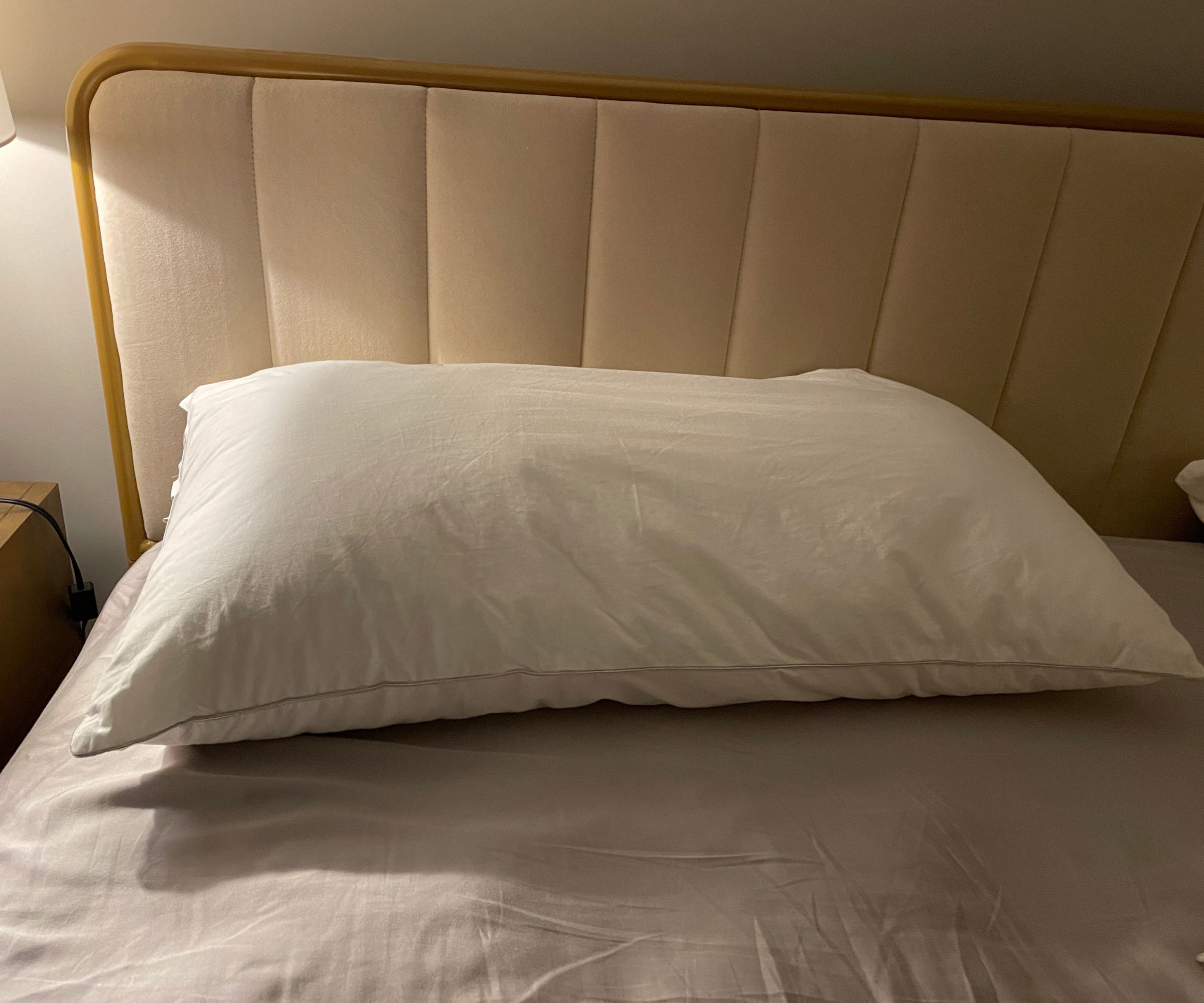
Specifications
Reasons to buy
Reasons to avoid
The Sleep Number PlushComfort Pillow collection offers three distinct shapes and sizes to suit all sleep styles. The Classic Pillow lies soft and flat, most comfortable for back and stomach sleepers. The Curved is designed to fit around the contours of your shoulders and support your neck overnight. The Ultimate Pillow is filled with inserts, which you can remove and replace until you reach your ideal look and feel.
Tester, Alex Frost, tried the classic and said: 'As a stomach sleeper, I've had my fair share of pillows that are either too firm for belly sleeping and lead to arched backs and achy necks, or are too flat and offer insufficient support. Fortunately, the PlushComfort Classic Pillow walks the line of squish and support.'
Alex continues, 'It's filled with down alternatives, so you get the look and feel of down without the effort of cleaning it.' It's also hypoallergenic, making it a good choice if you're sensitive to allergens. 'It's also a breathable pillow, so belly sleepers won't struggle for air,' adds Alex.
'True to what Sleep Number advertises, this isn't a great pillow for side sleepers. If you sleep on your side, your head will fall too far, causing some unnatural and uncomfortable neck and spine alignment,' Alex explains, so if you are a side sleeper, you'll want to opt for the Curved option, which is specifically designed to fit the body's contours and support the spine when side sleeping.
If you suffer from allergies, we recommend adding Sleep Number's Cotton Pillow Protector, which minimizes dust and allergens thanks to its tight weave. If you're a hot sleeper, opt for the TrueTemp Pillow Protector with its 37.5® Technology, featuring active particles that move heat and humidity away from the body. Both protectors fit the brand's classic pillow shape.
Read the full review: Sleep Number PlushComfort Pillow
Attribute | Notes | Score (out of 5) |
|---|---|---|
Comfort | Removable inserts to achieve the right level of comfort | 5 |
Support | Good balance of soft and supportive | 4 |
Thermo-regulation | Breathable enough to feel comfortable sleeping on your stomach | 4 |
The Best Pillow for Neck Pain
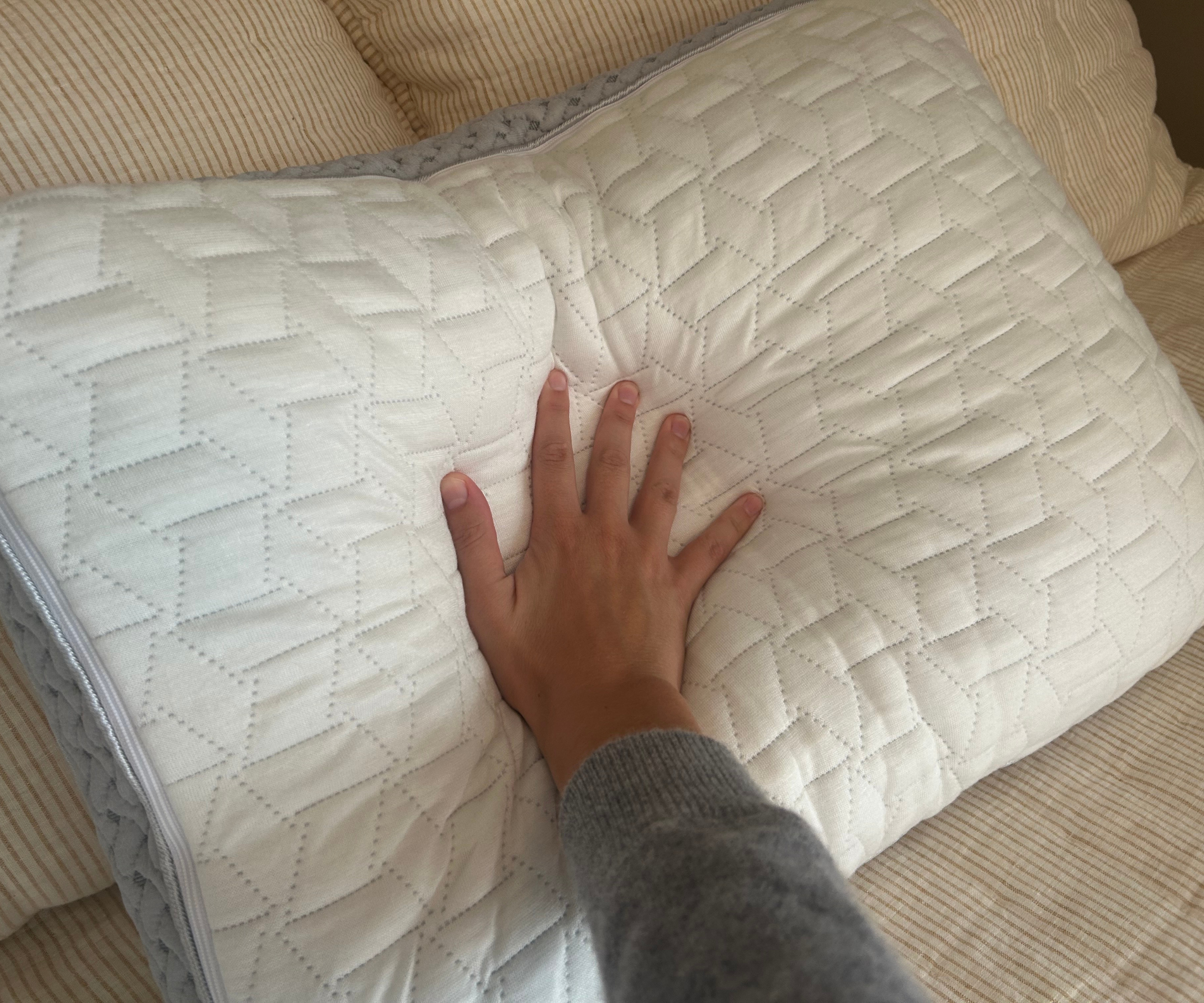
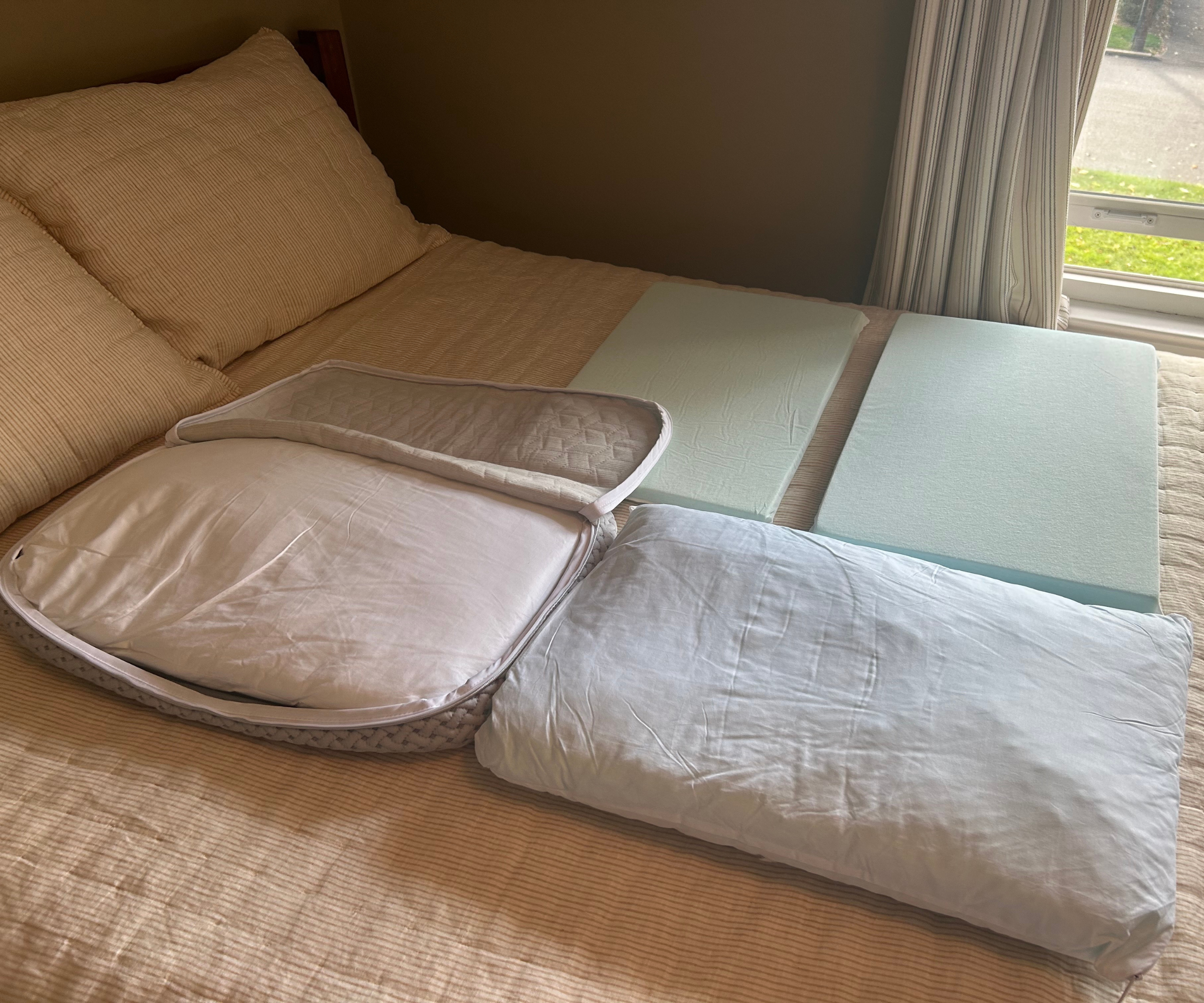
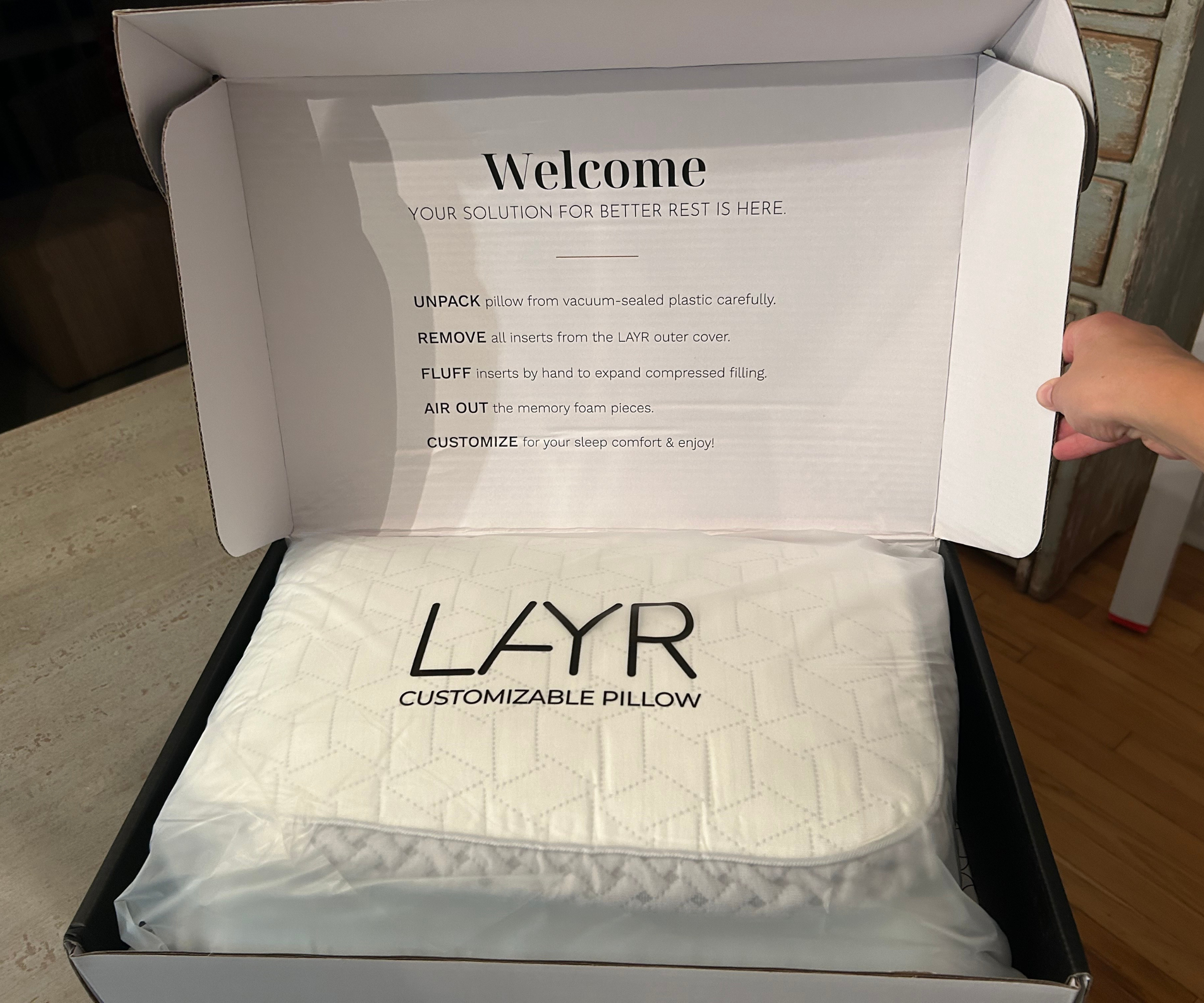
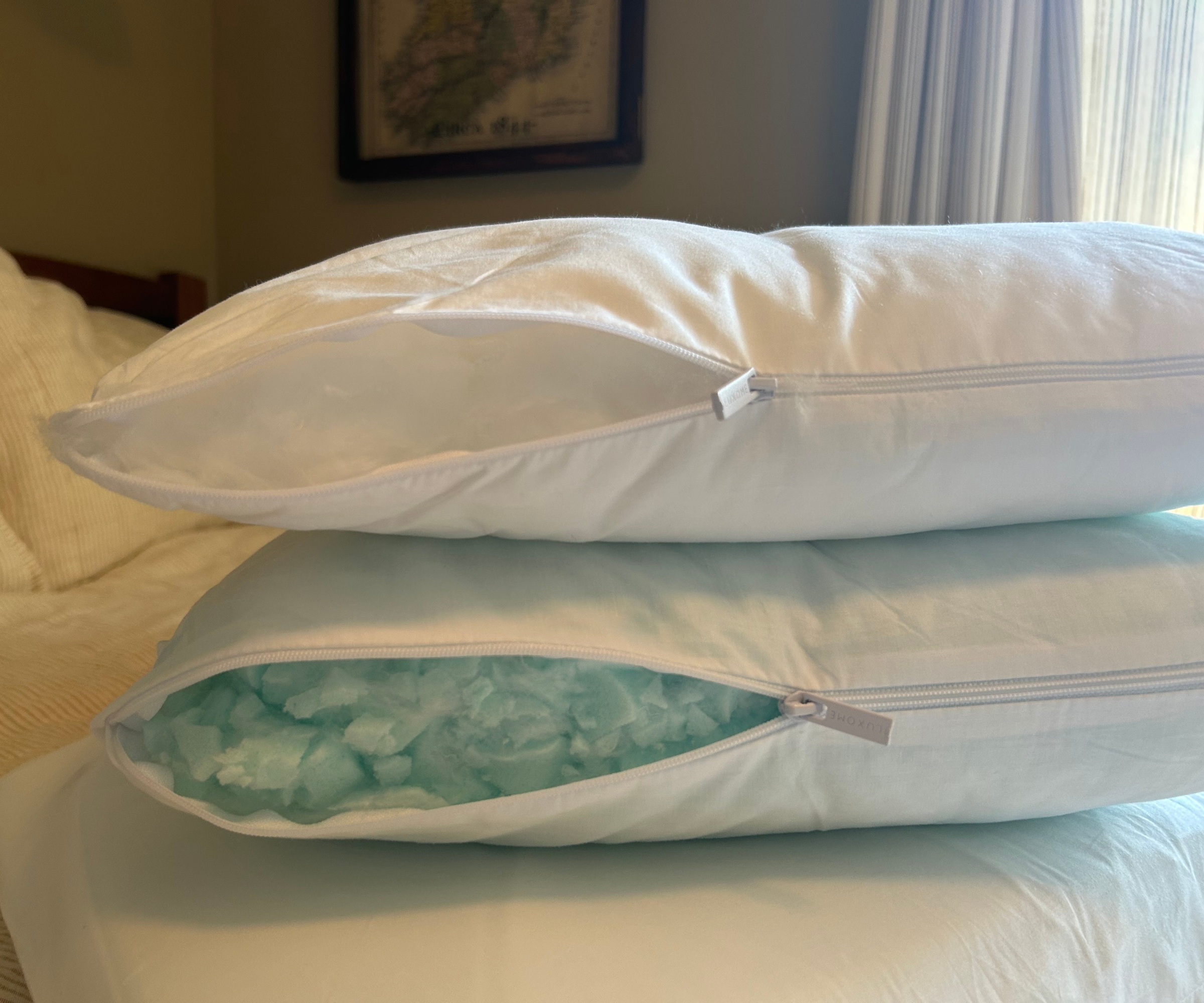
Specifications
Reasons to buy
Reasons to avoid
The Luxome LAYR Customizable Pillow allows you to adjust the firmness and loft by removing or adding the included down alternative and memory foam inserts. You'll just need somewhere to store any surplus inserts.
'I can confidently say this pillow is a game-changer,' says tester Devin Toolen. 'It arrives pre-configured in a naturally cooling bamboo viscose cover with the brand's most popular combination: one layer of ultra-soft down alternative and another layer of gel-infused shredded memory foam.' You'll also receive a third layer of solid memory foam if you prefer a firmer pressure. These layers can be mixed and matched or flipped for a different feel to suit any type of sleeper – front, back, or side.
There are more than 1800 reviews on the Luxome site, with more than 1600 rating the pillow five stars, giving an overall average rating of 4.9. Many reviewers had bought the pillow specifically to reduce neck pain. 'I have been sleeping on this pillow for the last week, and while this is still relatively new, I was surprised at all the things it came with. A week in and I have no more neck pain,' says one. 'The LAYR Pillow has been the only one that truly corrects my spinal alignment. I have been pain-free since the first night,' another reviewer writes.
It's not the most affordable pillow on our list, at $150, but Devin concluded that 'despite its steep price tag, this pillow is totally worth the money. Because of the many ways in which you can reconfigure this pillow, it's like getting multiple pillows in one.' There's no need to fork out on an additional pillow protector either as the pillow covers and insert covers are all machine washable. If you're looking for a more affordable adjustable pillow, however, I recommend the Marlow Pillow.
Read the full review: Luxome Layr Pillow
Attribute | Notes | Score (out of 5) |
|---|---|---|
Comfort | Adjustable firmness to suit any sleep position | 5 |
Support | Anecdotal evidence of pain relief | 5 |
Thermo-regulation | Stays cool through the night thanks to the naturally cooling bamboo viscose cover | 4 |
The Best Down Pillow

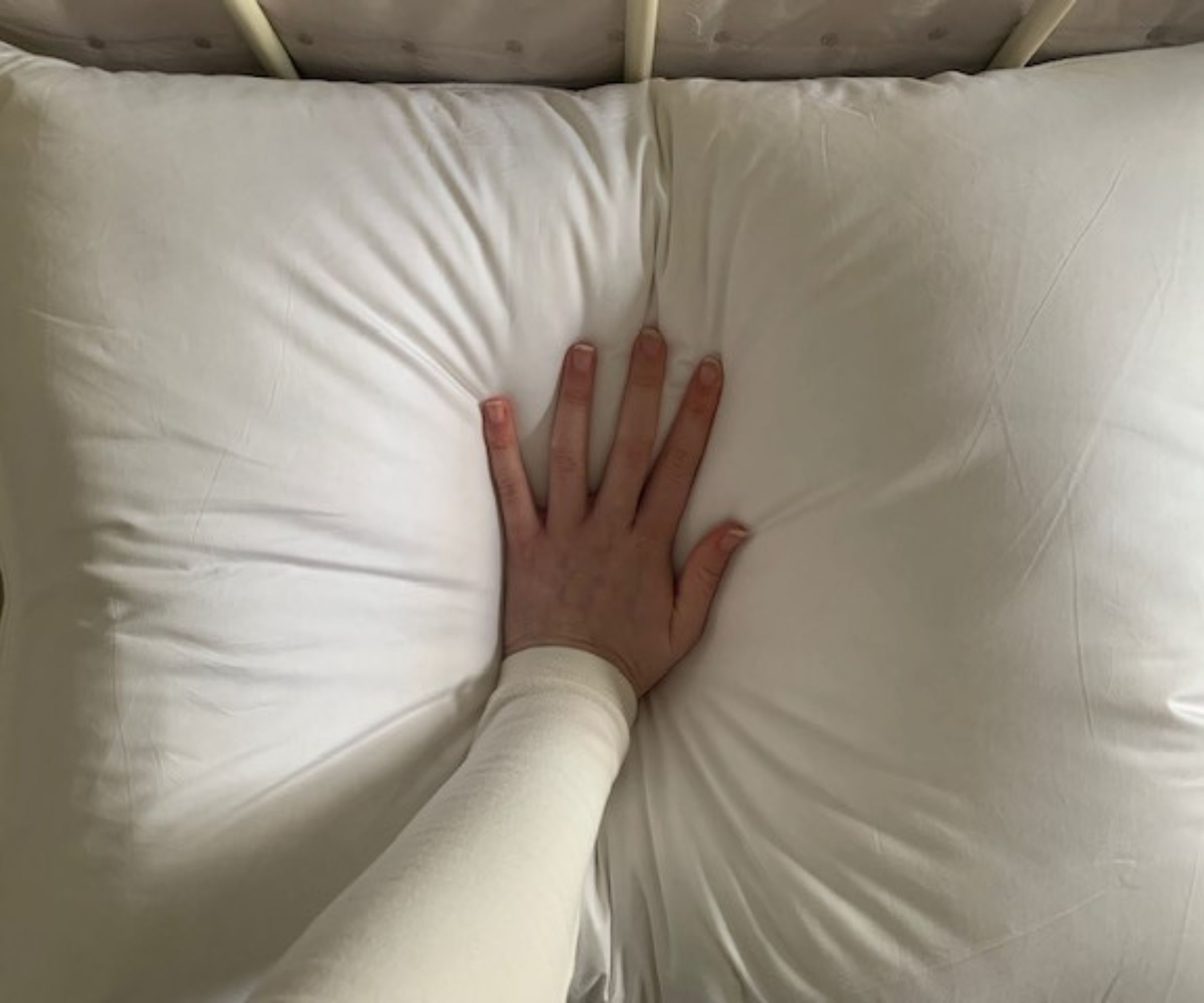
Specifications
Reasons to buy
Reasons to avoid
For plush comfort, there's nothing like real down. I tested the Brooklinen Down Pillow, which is filled with fluffy clusters of filament-free duck down (as opposed to whole feathers, where the filaments can poke through and scratch the skin), and this creates that beautiful natural loft.
While I was skeptical about trying a plush pillow – I usually prefer something flatter – the Brooklinen Down Pillow struck a balance between softness and support, and I felt comfortable all night long.
It comes in Plush, Mid-Plush, and Firm to suit every sleep style. I tested the Mid-Plush, which I think is the brand's most versatile option, and the best fit for your guest bedroom. To keep your down pillow looking its best, be sure to fluff it every morning. You may also want to invest in the Brooklinen Pillow Protector Set, which includes two densely woven sateen covers to protect your pillow from stains and allergens.
Down can also tend to retain heat more than alternatives and harbor dust mites, so if you're a hot sleeper, or allergy sufferer, you may want to steer clear of a down-filled pillow like this.
And if you have ethical concerns, I can confirm that the duck down in the Brooklinen Down Pillow is responsibly sourced from Hutterite farms and certified by DOWNMARK. However, if you're vegan or suffer from allergies, you'd be better off with a down alternative, such as the Saatva Latex Pillow.
Read the full review: Brooklinen Down Pillow
Attribute | Notes | Score (out of 5) |
|---|---|---|
Comfort | Squishy, sinking feeling | 5 |
Support | Available in three firmness levels to suit all sleepers | 5 |
Thermo-regulation | Down tends to retain a little heat | 3 |
The Best Memory Foam Pillow

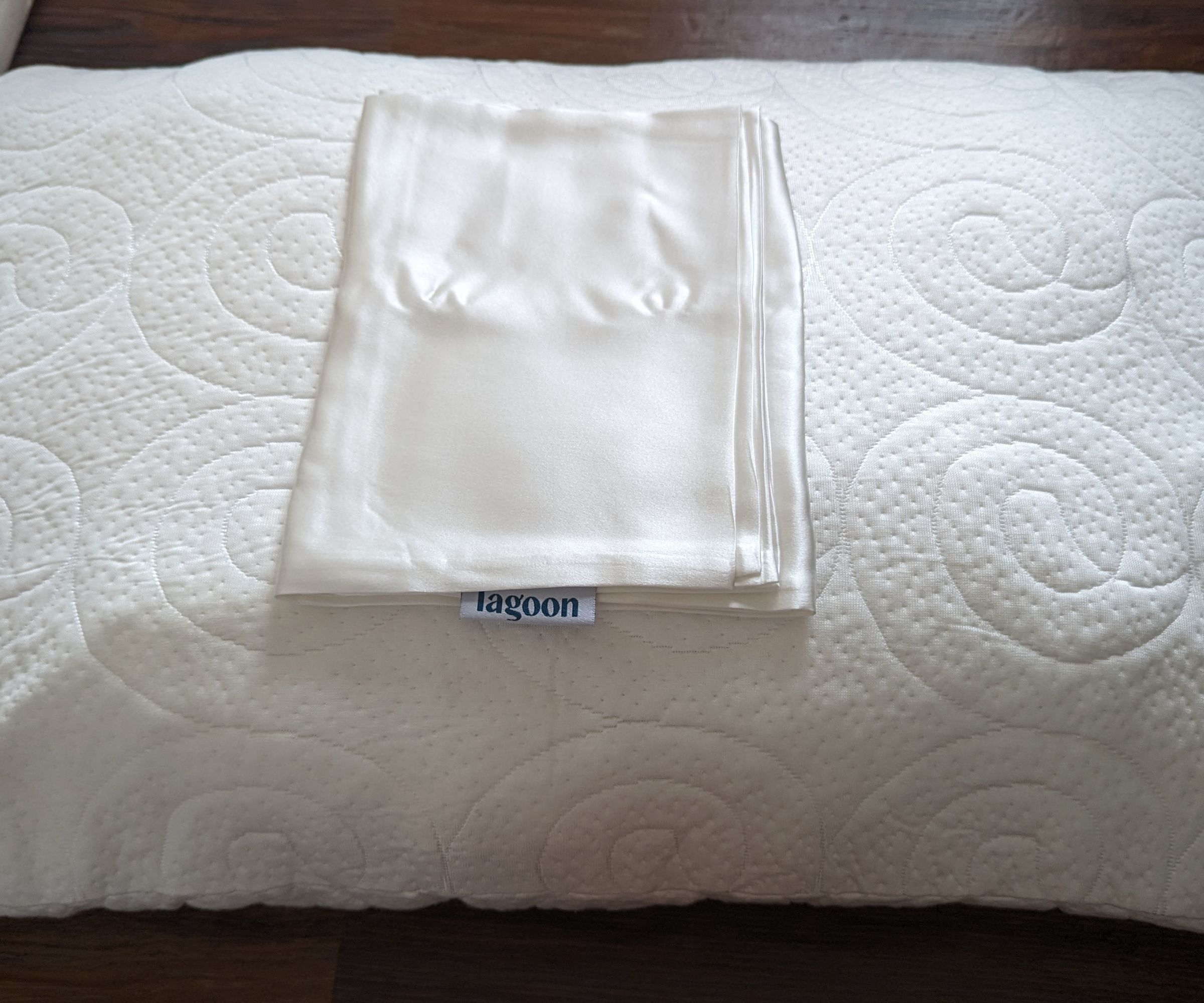
Specifications
Reasons to buy
Reasons to avoid
Like all the best memory foam pillows, The Fox Pillow is made to mold to the shape of your head and cushion your neck and shoulders, making it a good choice for back and side sleepers, in particular. The difference with this pillow is that it's filled with a mix of shredded memory foam (as opposed to a single piece, which tends to be on the firm side) and soft down alternative fibers. This filling can be added or removed to create a thinner or deeper pillow, to suit your sleep style, making it completely adjustable.
'The Lagoon Fox Pillow feels soft and squishy, not as firm as I'd expect from memory foam,' says expert tester Alex Temblador. 'I attribute that to the finely spun microfibers that make up the down alternative part of the fill.'
Alex continues: 'I've realized lately that I prefer my pillows on the thinner side, as it helps to align my neck with my spine. My favorite thing about The Lagoon Fox Pillow is that I could continually adjust the thickness, removing and replacing fill until I figured out what worked for me.'
Retailing at $140, the Lagoon Fox Pillow is admittedly pricey, but Alex thinks 'it's a top-quality pillow that will improve your sleep'. You can also order the Fox Performance Pack (retailing at $289.96), which includes the pillow, a silk pillowcase, and a travel compression bag. Alex tried the silk pillowcase too and said it was 'exceptionally smooth, cool to the touch, and soft. It also assists with maintaining and improving the health of your hair and skin.' And, while the cover is washable, you may want to invest in an extra Cover for the Fox Pillow, so that you can continue using your pillow between washes.
Read the full review: Lagoon Fox Pillow
Attribute | Notes | Score (out of 5) |
|---|---|---|
Comfort | Softer than solid memory foam | 4 |
Support | Adjustable firmness to suit every sleep style | 5 |
Thermo-regulation | Not quite as breathable as natural latex | 4 |
The Best Latex Pillow

6. Saatva Latex Pillow
Specifications
Reasons to buy
Reasons to avoid
If you love the sink-in comfort of down, but suffer from allergies or you are vegan, the Saatva Latex Pillow presents a very good alternative.
Long-time allergy sufferer and expert bedding tester for Homes & Gardens, Meg St-Esprit, can't use down as it harbors dust mites that play havoc on her sinuses. Having tried many down alternatives, Meg has never found anything to match the comfort of natural down whilst also providing the neck support she needs.
'From the moment I opened the box, I was impressed with the loft and feel of the Saatva Latex Pillow,' says Meg. 'This pillow has the luxurious 'sinking' feel of a nice down pillow, but it springs back up more quickly. I could tell from my first few squeezes that it would provide decent support in whatever position I decided to sleep in.'
The Saatva Latex Pillow is filled with shredded natural latex, which works a lot like memory foam to mold to the shape of your head, neck, and shoulders. But unlike memory foam, natural latex is eco-friendly and suitable for hot sleepers as the open-cell structure creates air pockets to keep you cool. Latex is also hypoallergenic and antimicrobial to resist the growth of dust mites and mildew, which combined with the fact that the organic cotton-covered fill later is machine washable, negates the need for a separate pillow protector.
The pillow comes in two heights: Standard Loft, which is roughly five inches tall, and High Loft, which goes up to seven inches. Back sleepers will likely prefer the Standard Loft, while the High Loft will suit side sleepers better. If you sleep on your stomach, you should shop for something flatter, such as the Brooklinen Down Pillow. As a back and side sleeper, who has always used two pillows, Meg admits: 'I think it may have made me a one-pillow convert.'
At $165 for a Queen, it's an investment, but, as Meg points out, the Saatva Latex Pillow retains its shape well, has high-quality stitching and finishes that should pass the test of time, and, she adds, 'it's actually less expensive than some other latex pillows on the market.'
Read the full review: Saatva Latex Pillow
Attribute | Notes | Score (out of 5) |
|---|---|---|
Comfort | Down-like feel | 4 |
Support | Ideal for back and side sleepers | 4 |
Thermo-regulation | Naturally cooling | 5 |
Best Pillow – Side by Side
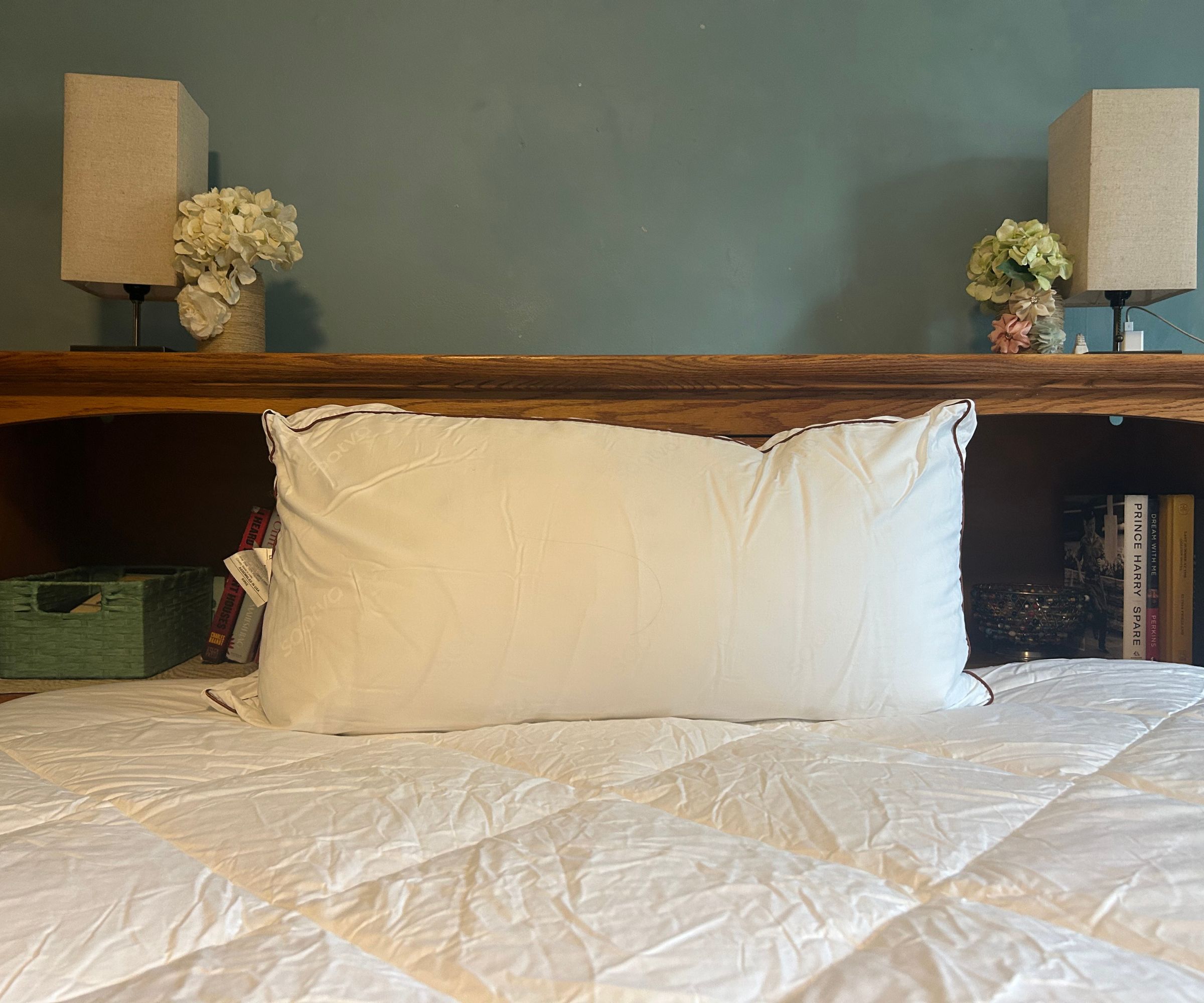
The Saatva Latex pillow on tester, Meg's bed
Scores (out of 5) | Comfort | Support | Thermo-regulation |
|---|---|---|---|
The Marlow Pillow | 5 | 5 | 4 |
Sleep Number PlushComfort Pillow | 5 | 5 | 4 |
Luxome LAYR Customizable Pillow | 5 | 5 | 4 |
Brooklinen Down Pillow | 5 | 5 | 3 |
The Lagoon Fox Pillow | 4 | 5 | 4 |
Saatva Latex Pillow | 4 | 4 | 5 |
Honorable Mentions
Over the years, our expert team has tested a wide range of pillows. Our top six represent the best for comfort, cooling, and cost, but you might find that another pillow is more suitable for your sleep style. With that in mind, I want to spotlight these other tested pillows for your consideration.
- Cozy Earth Silk Pillow: retailing for $198 for a Standard, the Cozy Earth Silk Pillow is one of the most expensive I've ever tested, but that's the only reason it didn't make the main buying guide. Mulberry silk might be costly, but it's naturally cooling for hot sleepers and hypoallergenic to soothe sensitive skin. As a stomach sleeper who sometimes wakes up on my back, the Cozy Earth pillow squishes beneath my body to save my neck from straining. If you're a side sleeper and you're looking for something more supportive, I'd recommend the Saatva Latex Pillow instead.
- Woolroom Organic Washable Wool Pillow: filled with organic wool, which makes a natural moisture-wicking, and one of the best cooling pillows for anyone who suffers from night sweats. Much like the Lagoon Fox Pillow, the Woolroom Organic Washable Wool Pillow is easy to adjust to your ideal thickness and firmness, but you'll need to find somewhere to store that surplus wool. Testing got a little messy, as I kept finding tufts of wool on my carpet.
- Coop Home Goods Original Adjustable Pillow: While memory foam pillows can trap heat, this one is infused with gel beads, which absorb excess thermal energy, while a bamboo poly-blend pillow cover works to wick moisture. Plus, it's adjustable. 'Simply unzip the outer quilted shell, then the secondary inner lining, and add or take away as much of the shredded memory foam as you like to make your pillow firmer or softer,' says expert tester Louise Oliphant
How We Test Pillows
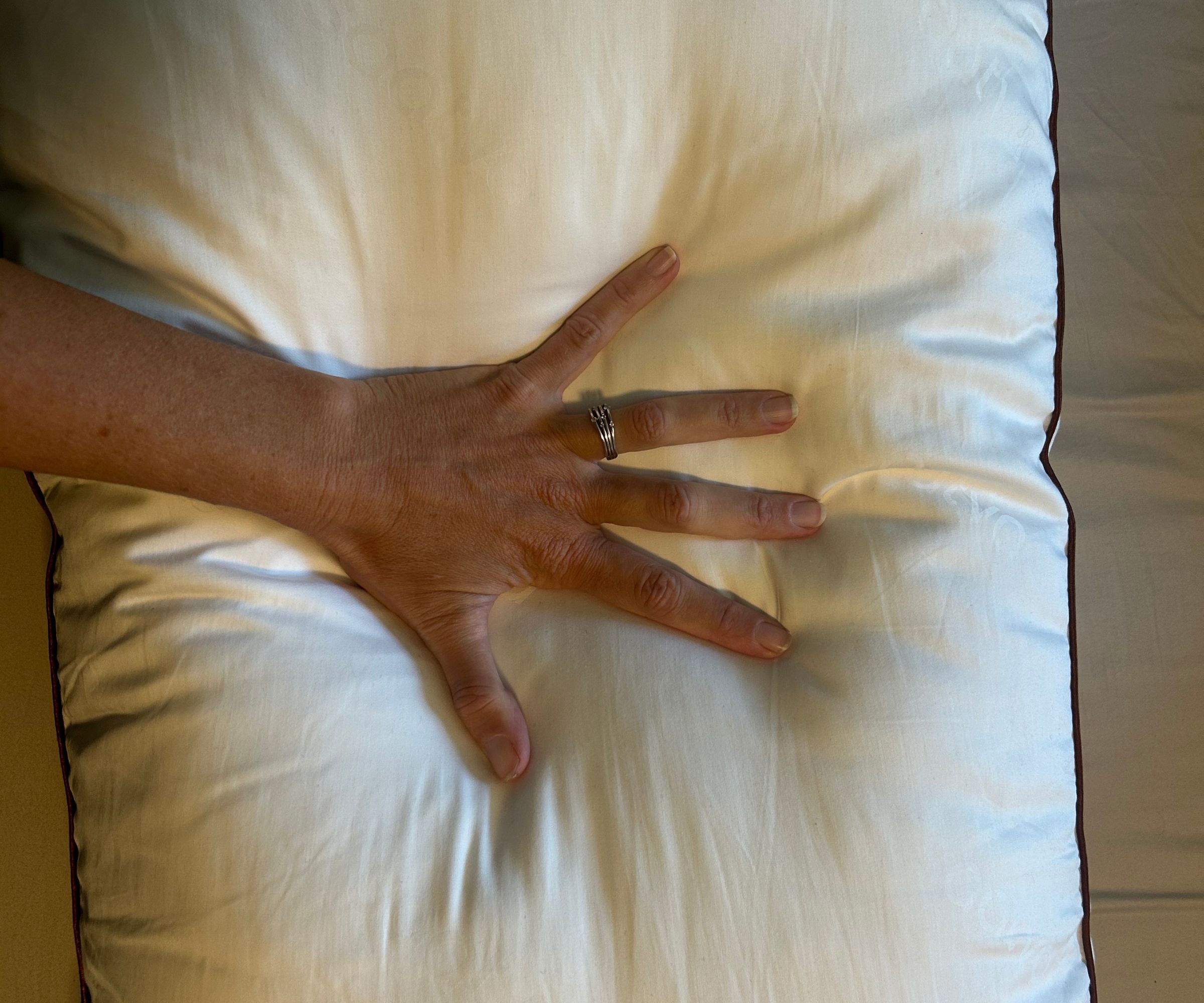
Tester Meg St-Esprit testing the Saatva Latex Pillow
As experienced product testers, we sleep on each pillow for at least 30 nights before publishing our initial review, often continuing to monitor its long-term performance beyond that.
For consistency, every pillow is assessed using the same criteria: comfort, support, thermoregulation, and durability. Our Homes & Gardens testing team spans different climates, ages, and sleep styles, ensuring well-rounded results.
To evaluate comfort and support, we switch between stomach, back, and side sleeping, scoring each position out of five for neck and shoulder support. We test thermoregulation with HVAC systems turned off, taking into account room temperature and the season. Durability is judged by how the pillow looks and feels over time – checking for lumps, flattening, and wash performance.
We also analyze verified customer reviews to gauge long-term satisfaction and weigh all findings against price to determine overall value for money.
Our Expert Team of Pillow Testers

As our resident Sleep Editor, Emilia leads a team of expert testers across the country to rank and review the best pillows. Emilia looks for versatile pillows which are adjustable to suit every head in the household.

Alex is one of our most prolific sleep product testers, with eight mattress reviews, a comforter review, and a pillow review under her belt. As someone who suffers from upper back pain, Alex needs a pillow to support her neck and spine.

Alex is one of our more prolific sleep product testers, with three mattress reviews, a mattress topper review, a comforter review, and a pillow review under her belt. As someone who suffers from recurring neckache, Alex appreciates the pressure relief of memory foam.

As Style Editor at Homes & Gardens Devin has an eye for spotting the most beautiful pieces for your home, but she also values quality. That's why when she tests bedding for our Buying Guides and reviews she has the highest standards when it comes to what both looks good and does the job well.

As a travel journalist, Meg has slept on a whole range of mattresses and beds, so she knows what makes for a good night's sleep. She reviews sleep and bedding products for Homes & Gardens, giving her honest and experienced take.
The Best Places to Buy Pillows Online
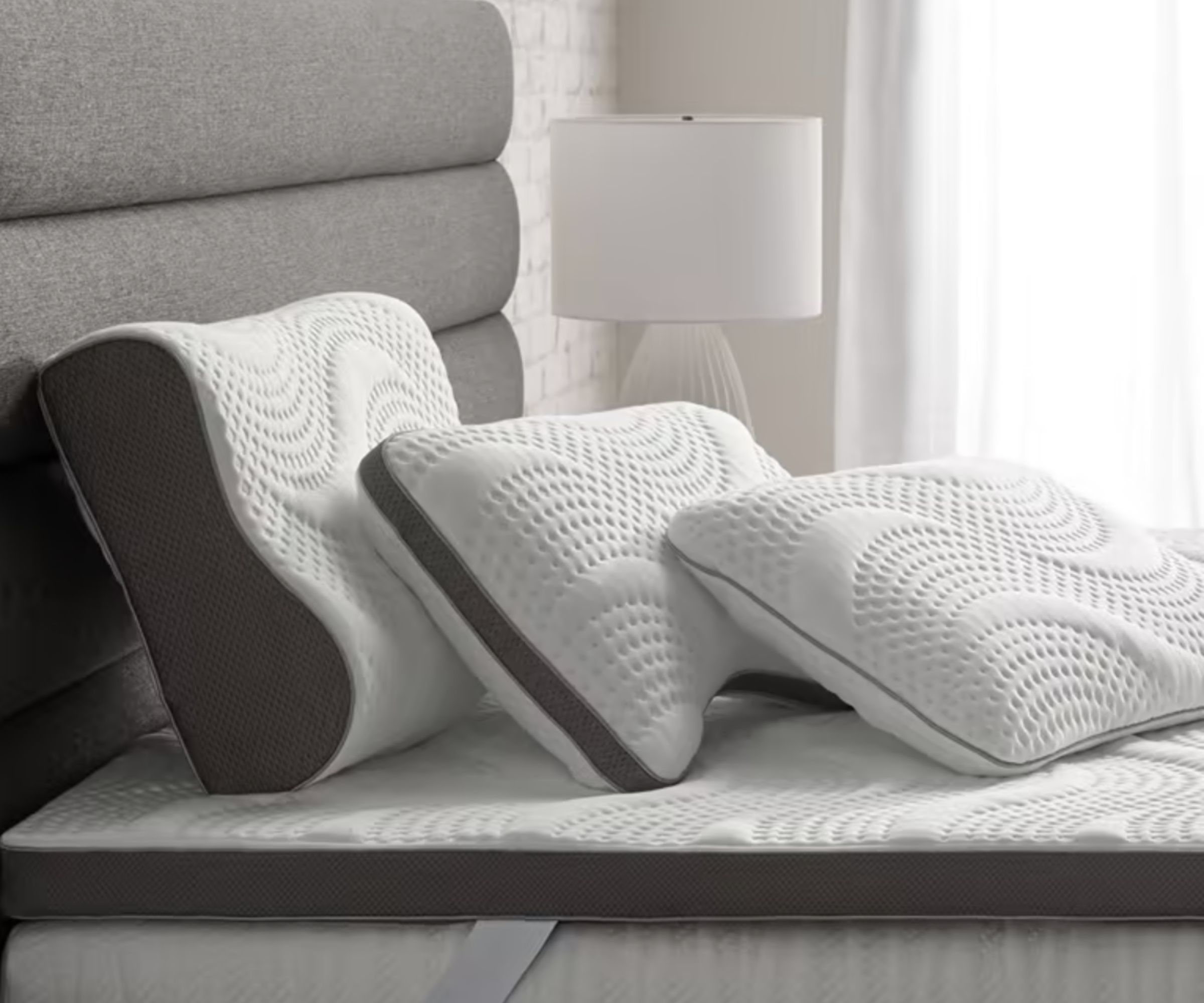
Sleep Number pillows come in three different shapes for different sleep positions
The best places to buy pillows are specialist sleep stores. Sure, you could pick up a pillow from the bargain bin at your local home retailer, but it's far less likely to give you the support and breathability you need. Without being able to touch and test them in person, it can be difficult to know where to start, so we've compiled a list of retailers we recommend for shopping for the best pillows online, to help you buy wisely.
- Sleep Number: Sleep Number knows that there's no one-size-fits-all, so each of their pillows comes in three different shapes, or with adjustable inserts to help you find your own perfect fit. The brand represents a good mid-range price point, but there are often deals to be had if you're savvy.
- Brooklinen: For the best range of fills, from down to down alternatives and our best pillow overall, and multiple support levels, from plush for side sleepers to firm for back and stomach sleepers, and mid-plush for everyone else. While the brand does have sales, it's surprisingly affordable for some of the best quality pillows we've tried.
- Saatva: With a selection of down, memory foam, and latex pillows, Saatva is one of the more luxurious brands, which is reflected in the price as it offers some of the more expensive products we've tried, thanks to additions such as cooling graphite in their memory foam pillows and organic cotton covers. Keep an eye on Saatva deals for the best prices.
- Amazon: You'll find a mix of products from big-name brands and smaller specialist sleep stores, but it pays to be selective. Use the search filters to find your ideal fill, firmness, shape, and size, and be sure to read a range of customer reviews to get an accurate indication of what you're buying. Sale periods such as Amazon Prime Day in July and October, and Black Friday in November, are the best times to bag a bargain.
- Cozy Earth: Another high-end brand, Cozy Earth makes pillows with premium materials, such as breathable bamboo, luxe down alternatives, and even silk, all of which take more time and energy to produce than cheaper synthetic fibers and fills. This also means its pillows are naturally moisture-wicking, thermoregulating, and antimicrobial, so worth the spend if you can afford it. Or wait for the sales to get them a little cheaper.
- Woolroom: As you'll guess from the name, Woolroom makes pillows filled with wool, which is one of the best natural materials for thermoregulation and moisture-wicking that money can buy. You can adjust the pillows to your preferred height and firmness by simply unzipping and adding or removing wool filling. You can expect decent discounts in the sales if you can wait to buy.
How to Choose the Best Pillow for You

Tester, Devin, unboxing The Luxome Layr Pillow
Pillow Fill Types
There is a range of different pillow fill types, and the best one for you will be determined by your sleep position and particular needs, from whether you suffer from allergies to neck pain. Here's an overview of the main pillow fill types, although there are also many hybrid options, which combine a mix of fills or have adjustable layers of different fill types.
- Down pillows are filled with real duck and goose feathers. When clustered together, tufts of down are interspersed with tiny air pockets, which create natural loft. Down pillows, like the Brooklinen Down Pillow, look great on your bedspread, but they need regular fluffing to keep in good condition.
- Down alternative pillows, like the Sleep Number PlushComfort Pillow, are typically filled with synthetic materials, including polyester and microfiber, spun into soft, silky fibers. Premium designs can look and feel a lot like down, while cheaper models can feel firm and inflexible. It's worth spending that little bit extra for a good-quality down alternative. I'd recommend a down alternative pillow for vegan shoppers and anybody with dust mite allergies, which are exacerbated by down.
- Memory foam pillows are made to relieve pressure and ease pain. The foam molds to the shape of your head, neck, and shoulders, and springs back into shape as soon as your weight is removed. Memory foam pillows are pretty affordable, but they tend to trap heat, so I wouldn't recommend them for hot sleepers. You can also get shredded memory foam pillows, like the Lagoon Fox Pillow, which may be combined with a down alternative material and are less firm and more thermoregulating.
- Latex pillows share a lot of similarities with memory foam models, in that they're made to mold to the shape of your neck and shoulders to provide enhanced pain relief. Unlike memory foam, natural latex is an eco-friendly material that sleeps cool, so it's ideal for hot sleepers and eco-conscious shoppers. Out of all the pillow types, latex tends to be the most expensive, like the Saatva Latex Pillow.
- Wool: Wool is naturally breathable and thermoregulating, so it will keep you cool if you sleep hot and warm if you sleep cool. It's hypoallergenic, too, so ideal for anyone with allergies, and is also moisture-wicking to prevent hot sweats. It won't offer as much support as some other options, and can go flat over time, though. Try the Woolroom's Washable Wool Pillow.
- Gel: Cooling gel layers, pods, or infusions are inserted into the pillow material to regulate temperature and reduce heat buildup, like the Purple Harmony Pillow, which features a Honeycomb GelFlex Grid for cooling and pressure relief.
Pillow Sizes Explained
We spend around eight hours each night sleeping on one, so it's crucial to choose the correct size and shape pillow for your needs. Too big and you could suffer from neck pain; too small and you won't have enough support. While there are standard pillow sizes, top-line pillows aren't a one-size-fits-all product. Sleep style, weight, and mattress size can alter whether a standard/queen or king will best suit you.
Stephen Light, CEO of mattress and bedding company Nolah, explains, 'their exact dimensions may vary from brand to brand, but usually, they’re around 20x26 inches (standard), 20x30 inches (queen), and 20x36 inches (king).'
Most hotels will use standard-size pillows, as a comparison point. Queen-size pillows are generally larger and will feel thicker thanks to their wider edge. King-size pillows are ten inches longer than a standard pillow and will fit a corresponding king-size bed (or bigger).
As a rule of thumb, go for two standard pillows for a twin bed, four standard pillows for a full or queen-size bed, and at least two king-size pillows for a king-size bed. If you are heavier, a king-size pillow (regardless of your bed size) will provide more support, while lighter-weight individuals will prefer smaller pillows. If you are tall, a larger pillow will help to fill the space between your head and shoulders for a more comfortable night.
Consider Your Sleep Style
It's worth considering what position you sleep in most regularly before spending out on a specialist pillow. Here are the pillow styles I'd recommend for different sleep styles. If you want to take stock of your options, I recommend shopping at Sleep Number, which makes each of its pillows in three styles – Classic, Curved, and Ultimate – to support every type of sleeper.
- Side sleepers appreciate a thicker, firmer pillow to fill the gap between their head and shoulders while supporting their neck.
- Back sleepers tend to prefer a medium-height pillow with a plush feel, which allows their head to sink into the surface.
- Stomach sleepers benefit from a thin, soft pillow that squishes beneath their body weight and stops their neck from straining.
Pillow Firmness Levels
The pillow firmness you require will depend on your sleep position, weight, and whether you suffer from shoulder or neck pain. A single slab of memory foam tends to be the firmest pillow fill, while down and down alternatives are often very soft, and may not provide enough support for heavier individuals or those who require a good level of neck support. Fills such as latex or shredded memory foam are good mid-level options, while adjustable pillows can be stuffed with extra filling or layers made from different fills to help you customise your firmness level.
Special Pillow Types
As well as questions about fills, size, and firmness, you'll also want to consider whether to buy a specialist pillow that targets a particular complaint, such as hot flashes or neck pain. Here are some examples to think about:
- Adjustable pillows allow the user to create the perfect height and firmness for them, and come with zippers and either loose fill, which can be removed or added, additional layers in a combination of materials (such as the Luxome Layr Pillow) or simply by letting air in or out, like the Marlow Pillow. Adjustable Pillows do tend to be more expensive, but are a good choice for side sleepers or those who suffer from neck pain or discomfort.
- Cooling pillows can include options with a naturally cooling outer layer, such as bamboo, or a naturally breathable and moisture-wicking fill, such as wool or natural latex. Cooling pillows might also be infused with gel or even conductive graphite (like the Saatva Graphite Memory Foam Pillow), which draws heat away from your head and body. These are a great choice if you sleep hot, live in a warm climate, or suffer from night sweats.
- Shaped pillows can be beneficial if you suffer from neck pain. 'Contoured pillows cushion the right areas,' explains James Leinhardt, sleep and posture expert and founder of Levitex. 'A V-shaped pillow, for example, is perfect for side sleepers who need to keep their head upright and shoulders straight.' Woolroom's best-selling V-shaped pillow is designed to help those who suffer from shoulder, upper back, and neck pain, while Sleep Number's pillows all come in three shapes, including a curved profile to fit the contours of side sleepers and reduce neck strain.
Ethics & Sustainability of Pillow Materials
If you're eco-conscious or vegan, the ethics and sustainability of the materials used to make pillows will be important to you. Materials such as bamboo, which is sustainable and natural latex, are a good, eco-friendly choice that you might favor over memory foam or other synthetic fillings.
When it comes to down-filled pillows, look for ones that clearly state the down has been ethically sourced. Feather pillows come with the same ethical questions – the only difference is where on the bird it’s gathered from. Feathers come from the wings and back of the bird, while down is found below these feathers and closer to the skin.
Look for products that are certified with the Responsible Down Standard (RDS) and Global Traceable Down Standard (GTDS), which both confirm that farms are producing down without causing birds any harm. Look out, too, for the standard Downpass, which also confirms that down does not come from live-plucked or force-fed birds. Or you may prefer to skip down entirely in favor of an alternative.
If you're looking at Wool or cotton pillows, you can make sure it's organic and environmentally and socially responsible by checking it's Global Organic Textile Standard (GOTS) certified. You can also look for the OKEO-TEX STANDARD 100 label, which certifies that the materials have been tested within globally standardised criteria for any substances that could be harmful to humans.
Set Your Budget
Before you start shopping, I suggest you set an upper and a lower limit for what you want to spend. Personally, I'd never spend less than $40 on a pillow at full price, though I might be tempted to go lower during sales season, if the product is backed up by customer reviews. With that said, I'd hesitate to spend more than $120 on a pillow, unless I'm shopping for natural latex or a specialist pillow that offers customization or cooling, for example.
FAQs
How Often Should I Change My Pillow?
Depending on your pillow's type, it can be necessary to replace it after only a year. Some materials do tend to last longer than others. Pocket sprung, memory foam, Geltex, hollow fiber, natural, wool, and bamboo pillows all have an effective lifespan of around one to two years – but latex can last up to five years.
Jill Zwarensteyn, a certified sleep science coach at Sleep Advisor, shares, ‘If there is a noticeable decrease in the density and shape of your pillows, it’s time to consider getting new ones.' Jill adds: ‘If you’re noticing an onset of allergies, it might be time to replace your pillows.' Equally, if your pillow feels lumpy, or starts to smell unpleasant, or looks discolored, it's time for it to go.
How Many Pillows Should You Sleep With?
Even the best pillows can't correct a poor sleeping position if you don't use the right amount. But the answer to the question of whether you should sleep with one or two pillows is that it depends on your sleep position and the pillow size.
If you are a side sleeper, you should sleep with one deep pillow, or two shallower pillows, or a medium-high pillow. For back sleepers, one medium-thick pillow is best to keep the head, neck, and spine nicely aligned. This is also a good choice for combination sleepers, who like to toss and turn in the night, as it offers all-around support. Front sleepers generally require one thin pillow under the head, although they can get away with sleeping without a pillow if their mattress is supportive.
There is an argument that sleeping without a pillow can help with skin, hair, and sleep, with some claims that sleeping without a pillow can even alleviate neck pain, particularly for stomach sleepers, as a flat surface can keep the neck and head aligned when lying on your front, but the scientific backing is limited. Conversely, sleeping without a pillow if you sleep on your side or back may overextend the neck and affect healthy spinal alignment.
Is it Worth Buying a Pillow Protector?
We use the best mattress protectors to prolong the life and freshness of our mattresses, so why not use a pillow protector, too? Pillow protectors are thin fabric encasements that protect pillows from moisture, bacteria, and allergens, and some have cooling benefits to help you sleep better and help your pillows last longer.
Some experts believe that if you have good quality pillows and regularly wash your pillowcases, a pillow protector isn't necessary. Stephen Light, CEO and co-owner at Nolah Technologies, says, 'The best pillows already have protective, breathable, moisture-wicking, and hypoallergenic outer layers.'
However, using a pillow protector (such as Coop Sleep Goods' Ultra-Tech Pillow Protector, which is waterproof, yet soft) will help to keep your pillow in good condition by preventing hair oil, sweat, and other unwanted elements from staining your pillowcase, meaning you won't need to wash your pillows as frequently. A cooling option, such as the Marlow Pillow Protector from Brooklinen, can also help to regulate your temperature as you sleep. Or an antimicrobial coating like the one on the Brooklinen Pillow Protector Set can help to protect you from bacteria and allergy-causing dustmites, which can build up in a pillow that's not protected.
Should I Sleep With a Pillow Between My Legs?
If you're a side sleeper and suffer from aches and pains, sleeping with a pillow between your legs could help, as it assists in keeping one knee on top of the other, so that your hips and back do not rotate. Without a pillow between your legs, the top leg can pull the spine out of alignment. A firm pillow is best for ensuring a neutral hip position. If you don't like the bulkiness of a regular pillow, try a specialist pillow, designed exactly for this purpose to fit neatly between the knees, such as Amazon's best-selling Contour Legacy Pillow.
How Much Should I Spend on a Pillow?
How much you should spend on a pillow depends on the pillow type. I'd expect to spend at least $100 for a real, ethically-sourced down pillow, but around $50 on a synthetic down alternative. For pillows filled with premium materials, such as natural latex, organic wool, or silk, and specialist pillows, which offer features such as cooling or customization, you can expect to spend in the region of $150.
Now that you've chosen some of the best pillows, you'll want to invest in some of the best duvet inserts and comforters to complete your comfortable bed setup. Our testers have put the best brands through their paces to find the ones that will suit all sleepers to help you choose the best for you.
Design expertise in your inbox – from inspiring decorating ideas and beautiful celebrity homes to practical gardening advice and shopping round-ups.

Emilia is our resident sleep writer. She spends her days tracking down the lowest prices on the best mattresses and bedding and spends her nights testing them out from the comfort of her own home. Emilia leads a team of testers across America to find the best mattress for every sleep style, body type, and budget.
Emilia's quest to learn how to sleep better takes her all around the world, from the 3Z mattress factory in Glendale, Arizona to the Hästens headquarters in Köping, Sweden. She's interviewed luxury bedding designers at Shleep and Pure Parima, as well as the Design Manager at IKEA. Before she joined Homes & Gardens, Emilia studied English at the University of Oxford.
- Katrina Harper-LewisHead of Living